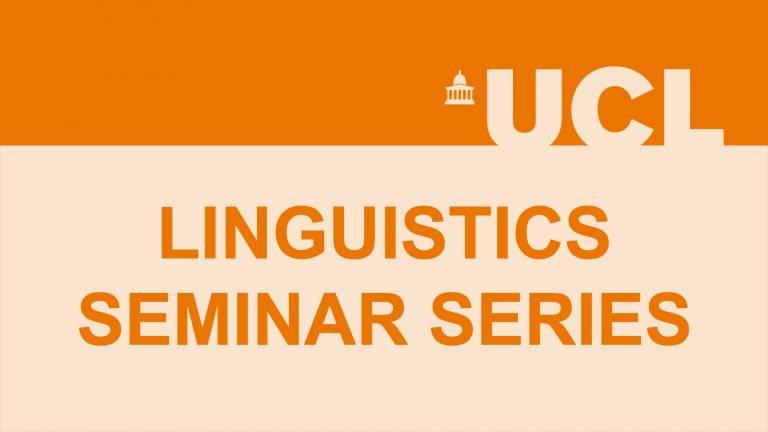Linguistics Seminar Talk - Ming Xiang
08 May 2024, 3:30 pm–5:30 pm

Pragmatic reasoning and the production-comprehension relation: the case of gradable adjective interpretation.
Event Information
Open to
- All
Organiser
-
Alina Konradt
This is an online seminar and will take place using Zoom - please see the details below.
Zoom link: https://ucl.zoom.us/j/91656286337
Meeting ID: 916 5628 6337
Title: Pragmatic reasoning and the production-comprehension relation: the case of gradable adjective interpretation
Abstract:
There is a growing body of psycholinguistics work arguing that comprehenders are capable of integrating interlocutor-based pragmatic reasoning into sentence comprehension. Under the traditional Gricean approach and the more recently formalized bayesian version of it, a listener's interpretation of a sentence is the outcome of a recursive rational reasoning process that takes into account a speaker's intentions and their production choices in a particular communicative context. In this talk, based on three sets of experiments, I will take a critical look at the strength and limitations of this approach, focusing on the interpretation of gradable adjectives. Gradable adjectives denote properties that are relativized to contextual thresholds of application, e.g. how long an object must be in order to count as long in a context of utterance depends on what the threshold is in that context. But thresholds are variable across contexts and adjectives, and are in general uncertain. In the first case study, using both human judgment data and computational modeling results, I will show that the optimal model performance is achieved when Bayesian pragmatic reasoning is supplemented with the traditionally assumed semantic conventions for thresholds. In the second case study, I will look at semantic adaptation of adjective meaning, demonstrating that although Bayesian update is a powerful tool to capture the adaptation behavior, the specific implementation of the update process does not necessarily need to resort to recursive pragmatic reasoning as previous accounts have assumed. Finally, in an eye-tracking study, we did not find a clear correlation between the production of the prenominal adjective modifiers and the eye-movement patterns of the referential contrast effect based on prenominal adjectival modifiers. Taken together, these case studies caution against a strong version of the pragmatic reasoning account that draws a very tight relationship between comprehension and production.
About the Speaker
Ming Xiang
at University of Chicago
More about Ming Xiang Close
Close

